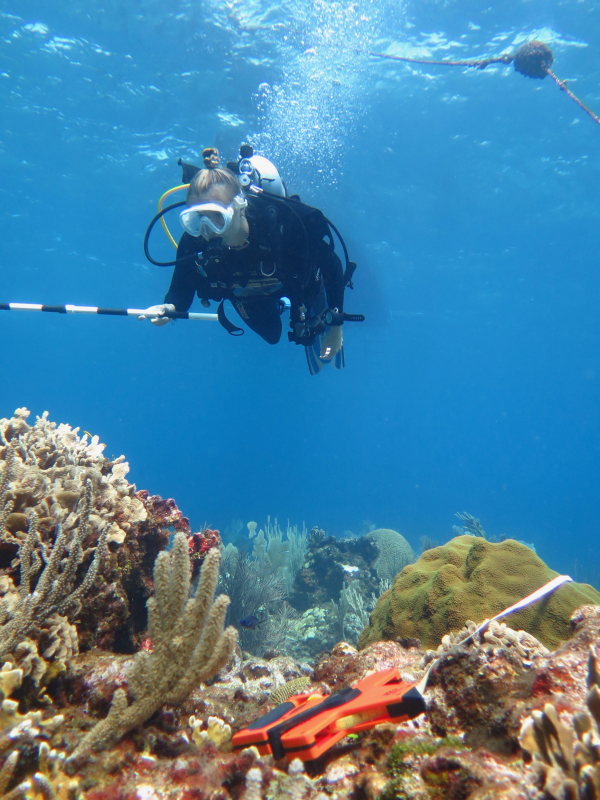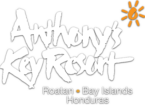Marine Science Internships
Dolphin Training and Research Internship

The Roatan Institute for Marine Sciences is excited to offer a 5-week Dolphin Training & Research Internship this summer. The program is open to upper-level undergraduates or recent graduates and will be limited to 12 interns. Interns will live and work at our facility and gain valuable research and field experience as they get to know our resident population of bottlenose dolphins (Tursiops truncates) and receive an invaluable introduction to the training process.
Under the direction of senior dolphin trainer and biologist Teri Bolton, interns will engage in a wide variety of activities and gain experience and skills that will make them more competitive when pursuing future employment and research opportunities in the field of marine mammal science.
Interns will:
- Receive in-depth lectures on various topics, including evolution, anatomy, physiology, echolocation, reproduction, cognition, communication, conservation, and social dynamics.
- Utilize field research methods to observe and record behavioral interactions.
- Learn marine mammal training techniques.
- Assist in dolphin husbandry and animal care management.
- Develop and implement an independent research project.
- Interact with an extremely dedicated and caring team of marine mammal professionals.
Coral Reef Research Internship

This summer, the Roatan Institute for Marine Sciences is excited to offer a 4-week Coral Reef Research Internship. The program is open to upper-level undergraduates or recent graduates and will be limited to 12 students. Interns will live and work at our facility and gain valuable research and field experience on some of the most well-developed and ecologically diverse reefs in the Caribbean.
Under the direction of professional mentors and marine biologists, interns will engage in a wide variety of activities and gain experience in the following:
- Identification of Caribbean coral, fish, invertebrates, and algae species.
- Application of field research methods to assess coral cover, abundance, and reef health.
- Development and implementation of an independent research project
- Coral nursery and reef restoration projects on the island.
- Population management of the invasive lionfish.
- Interaction with local conservation professionals.
